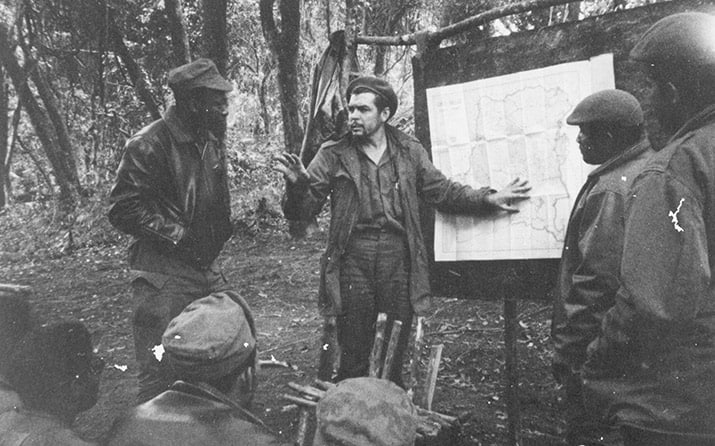Within revolutionary politics, the Argentine physician-turned-freedom fighter Ernesto “Che” Guevara remains an integral figure. Guevara, over his formative years, radicalized into a Marxist-Leninist, aided by his trip through Latin America during his early twenties. On this journey, Guevara saw the exploitation of natives. After the failed Guatemalan Spring, Guevara joined the Cuban Revolution and became a figure in not just Cuban politics, but world history, joining other guerilla initiatives. Guevara would then be killed in 1967 during his campaign in Bolivia, solidifying him into martyrdom. Despite his untimely death, Guevara’s contributions to Latin American history are immense, inspiring half a century of guerilla warfare movements. Scholarship on Guevara understandably focuses on his methods of revolution, aided by his image being integrated into the iconography of sociopolitical activism. However, Guevara’s life through a medical and intersectional lens shows his roots in healthcare tied with both his political beliefs and perceptions of race, gender, and class.

On the outset, it may seem difficult to assess Guevara on the merits of intersectionality. Yet, at the heart of Cuban Internationalism, Guevara intertwined revolution and medicine, based on his ideas of racial equality. In his 1960 speech to health workers and medical students, Guevara asserts the need for a mobilization of doctors as part of the fight against capitalism. Based on his speech, his travels demonstrated his understanding of the consequences that colonization has had on Black and indigenous people in the Global South. Guevara and the Cuban government also took great lengths to push for medical missions in Africa. This stemmed from both the African diaspora in Cuba and shortcomings in revolutionizing Latin America. Although not in Sub-Saharan Africa, in Algeria Guevara assisted in providing adequate pay and supplies to Cuban doctors. Guevara’s perceptions of Latin America, though limited by his shortsighted ideals of gender, still shows how his beliefs are influenced by both race and class.
Guevara is a monumental figure in Latin American history, influencing a half-century of political ideals and movements. In Cuba, an economic blockade led the island to act in defiance of U.S. power, creating in its wake an internationalist foreign policy. Guevara played a key role in the ideology and action needed to carry out these policies. His short life reveals Cuba’s resilience in the struggle to provide the needs of the people through the Cuban Revolution, especially those whose ethnic identity and race are factors in their economic and political oppression.
Works Cited
“Guevara, Che.” In Encyclopedia of Nationalism: Leaders, Movements, and Concepts, edited by Alexander J. Motyl. Elsevier Science & Technology, 2000.
Guevara, Ernesto “Che.” “Speech to medical students and health workers.” In Che Guevara Reader, edited by David Deutschmann, 112-120. Melbourne: Ocean Press, 2003.
Guevara, Ernesto “Che.” The Motorcycle Diaries: Notes on a Latin American Journey. Melbourne: Ocean Press, 2003.
Harris, Richard L. “Cuban Internationalism, Che Guevara, and the Survival of Cuba’s Socialist Regime.” Latin American Perspectives 36, no. 3 (2009): 27–42. http://www.jstor.org/stable/20684641.
Gleijeses, Piero. Conflicting Missions: Havana, Washington, and Africa, 1959-1976. Chapel Hill and London: The University of North Carolina Press, 2002.
